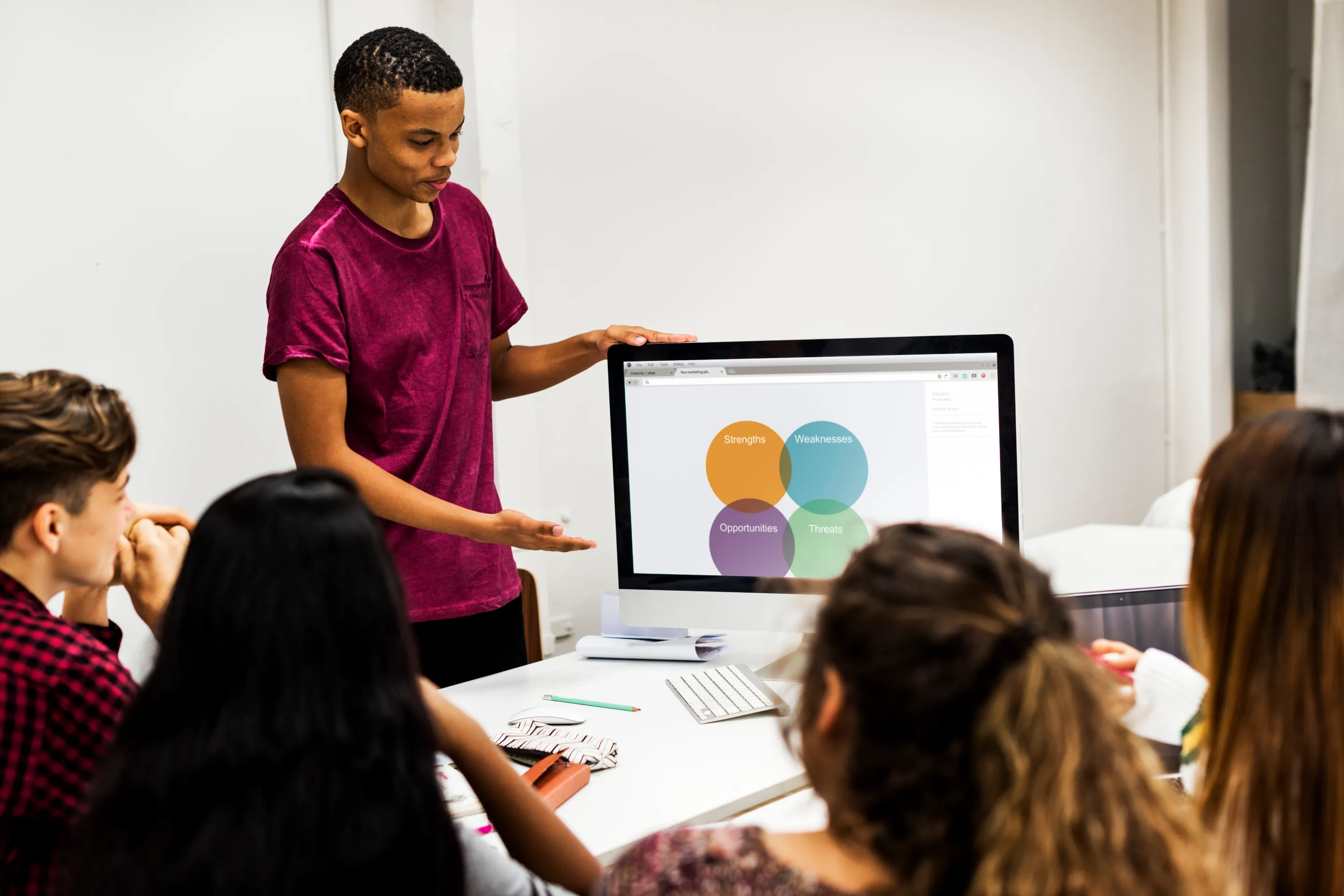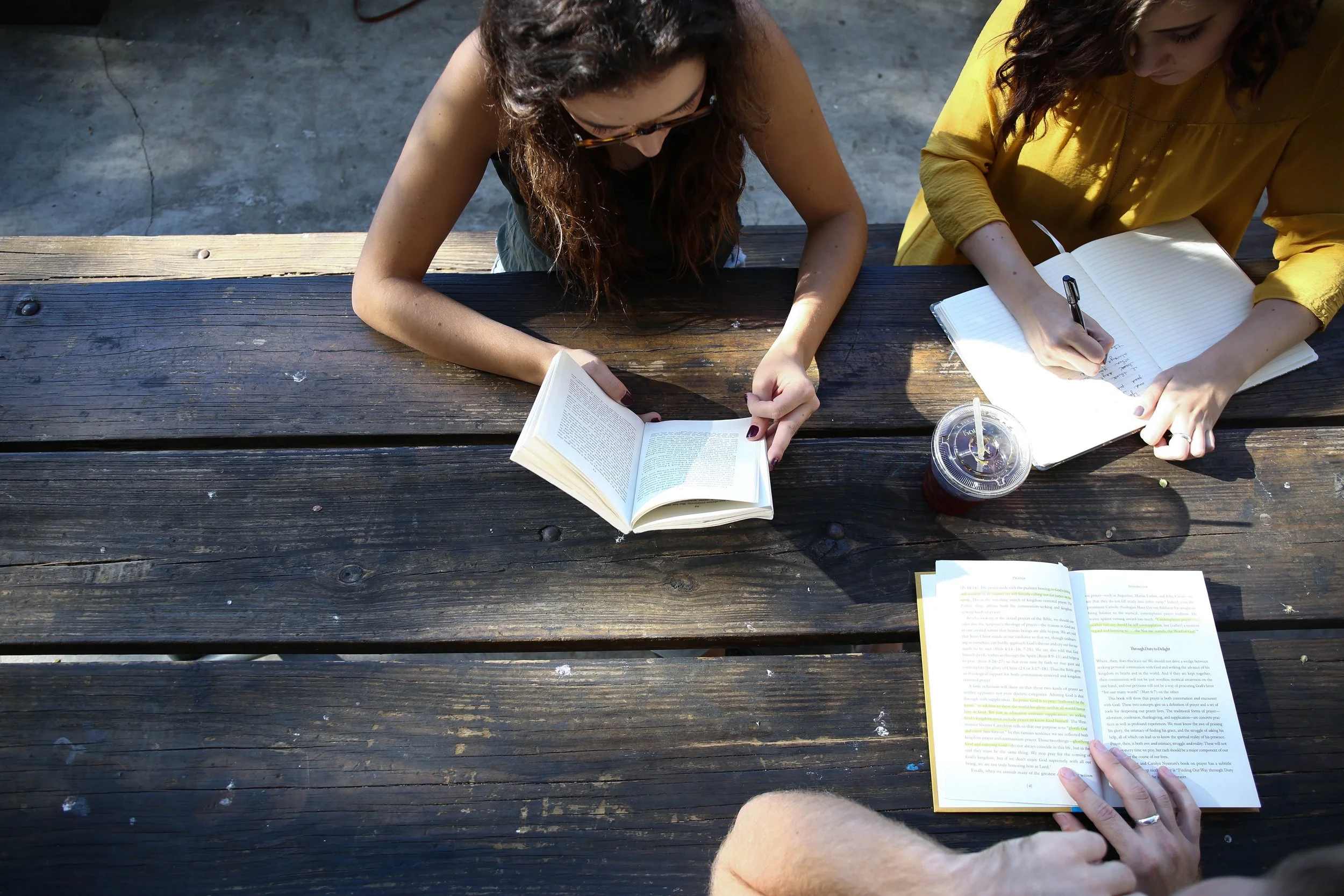COMMUNICATION SKILLS / PUBLIC SPEAKING
The Simple Way I Got Better at Public Speaking
Presentations used to make me super nervous and I'd mess up every time. These basic tips helped me sound way more confident in front of the class.
So like, I used to be really bad at presentations. Not just a little nervous but like sweating and shaking and forgetting everything kind of bad. Every time the teacher said we had to do a presentation I'd get this sick feeling in my stomach. I tried avoiding eye contact with everyone, talking super fast, and just hoping it would be over quick. But that just made everything worse and my marks weren't good either.
Last year in grade 9 I had to do this big history project presentation worth like twenty percent of my final mark. I knew I couldn't mess it up again. My older cousin who's in university told me some stuff that actually helped a lot. At first I thought it was gonna be complicated advice but it was actually pretty simple things that anyone can do.
The thing is most people think you need to be naturally good at talking in front of people or have some special talent. That's not really true though. I'm still not like a professional speaker or anything but I'm way better than before. My teachers noticed too and my presentation marks went from like sixty percent to over eighty percent. These tips aren't rocket science but they really work if you actually practice them.
I'm gonna share exactly what I learned because I wish someone had told me this stuff earlier. If you get nervous doing presentations in school these tips will probably help you too. They're not complicated and you don't need any special equipment or anything. Just some practice and changing how you think about presentations.
PRACTICE OUT LOUD WAY MORE THAN YOU THINK
This was the biggest thing that helped me. I used to just read over my notes in my head and think that was practicing. But practicing in your head is completely different from actually saying the words out loud. When you practice out loud you hear how things sound and you find the parts where you get stuck or don't make sense.
My cousin told me to practice my presentation at least five times out loud before doing it for real. I thought that was way too much but I tried it anyway. The first time I practiced out loud I realized I had way too many words on my slides and I was trying to say too much. By the third practice I started remembering what to say without looking at my notes as much. By the fifth practice I felt way more confident.
You don't need anyone watching you practice either. Just go in your room or somewhere private and do the whole presentation like it's the real thing. Time yourself too because that helps you figure out if you're going too fast or too slow. I use the timer on my phone and try to hit the time limit exactly. In Canada most school presentations are like five to ten minutes so you need to know if yours is the right length.
Also record yourself on your phone if you can. I know it feels weird watching yourself but you'll notice things you do that you didn't realize. Like I found out I say "um" and "like" way too much and I keep touching my hair. Once you know what your bad habits are you can work on stopping them.
MAKE YOUR FIRST SENTENCE REALLY EASY
The hardest part of any presentation is starting. Those first few seconds when everyone's looking at you and it's quiet and you have to begin talking. I used to panic right at the start and that would mess up my whole presentation. Then I learned this trick that makes starting way easier.
Write out your exact first sentence and memorize it perfectly. Not just know what you want to say but memorize the actual words. Make it a simple sentence that's easy to remember. Something like "Today I'm going to talk about..." or "Have you ever wondered why...". Nothing fancy just something you can say without thinking.
When you have that first sentence totally memorized it gives you confidence to start. You're not standing there trying to figure out what to say. You just say your memorized sentence and then your brain kind of switches into presentation mode and the rest flows better. It's like getting past the hardest part right away.
I memorize my first sentence and usually my last sentence too. That way I know exactly how I'm starting and ending. The middle part I know pretty well from practicing but I don't memorize every single word. Just the beginning and end need to be perfect.
LOOK AT PEOPLE'S FOREHEADS NOT THEIR EYES
Everyone says you need to make eye contact during presentations but that made me way more nervous. Looking directly at people's eyes made me forget what I was saying. But if you don't look at anyone at all you seem really nervous and unconfident. So there's this trick that works really good.
Instead of looking at people's eyes look at their foreheads or the space between their eyes. From where they're sitting it looks like you're making eye contact but you're not actually looking directly in their eyes. This makes it way less scary and you can focus on what you're saying instead of getting distracted by people looking at you.
Also move your eyes around the room. Don't just stare at one spot or one person the whole time. Look at different parts of the class every few seconds. This makes everyone feel like you're including them and it seems more natural. I usually pick like five different spots in the room and rotate looking at them.
If looking at people is still too hard you can also look at the back wall just above everyone's heads. This works better in bigger rooms but it's another option. The main thing is don't stare at the floor or your notes the whole time. Your head needs to be up and looking forward even if you're not looking exactly at people's eyes.
SLOW DOWN ON PURPOSE
When I get nervous I talk super fast. Like way faster than normal. I want to get the presentation over with so I rush through everything. But talking too fast makes you seem more nervous and people can't understand you as well. Also you're more likely to mess up your words or forget things.
The trick is to slow down way more than feels natural. What feels super slow to you probably sounds normal to everyone else. When you're nervous your brain is going fast so your sense of timing is off. You need to force yourself to talk slower than you think you should.
One way to do this is to pause between sentences. Like actually stop talking for a full second or two. This feels really weird at first and you think everyone will notice the silence. But pauses actually make you sound more confident and professional. It gives people time to process what you said and it gives you time to remember what comes next.
I practice pausing when I rehearse my presentation. I put little marks on my notes where I should pause. Usually after important points or between different sections. This helps me remember to slow down and not rush through everything. Teachers in Canada actually like it when you pace yourself well because it shows you're in control of your presentation.
USE NOTE CARDS THE RIGHT WAY
Note cards can help a lot but most people use them wrong. They either write way too much on them and just read everything word for word, or they don't use them at all and forget important stuff. There's a better way to use note cards that actually helps.
Only write key words or short phrases on your note cards. Not full sentences. Just enough to remind you what to talk about next. Like if you're talking about causes of World War One you might write "assassination" and "alliances" and "imperialism". Then you explain each one in your own words instead of reading.
Use one card per main point or section of your presentation. This makes it easy to keep track of where you are. Number your cards too in case you drop them or get them mixed up. I learned that the hard way when I dropped my cards once and had to scramble to put them back in order in front of everyone.
Hold your note cards in one hand and keep them still. Don't wave them around or fidget with them. Just glance down at them when you need to check what's next then look back up. The cards should help you not distract you. If you find yourself reading off them too much then you wrote too much on them.
DO SOMETHING WITH YOUR HANDS
One thing that makes people look nervous is when they don't know what to do with their hands. You see people put their hands in their pockets, cross their arms, fidget with stuff, or just let their arms hang there awkwardly. Your hands can actually help your presentation if you use them right.
Use hand gestures when you talk. Not crazy big gestures but natural movements that match what you're saying. If you're talking about something growing you can move your hands apart. If you're listing things you can count on your fingers. This makes your presentation more interesting to watch and it gives you something to do with your hands.
If you're holding note cards that's good because it gives one hand something to do. Your other hand can gesture. If you're not using note cards then both hands can gesture. Just don't overdo it or it looks weird. Watch videos of good speakers and see how they use their hands naturally.
The worst thing is keeping your hands completely still or hidden. That makes you look stiff and uncomfortable. Even small movements are better than no movement. Your hands help you express yourself and they make you seem more confident and natural.
ACCEPT THAT BEING NERVOUS IS NORMAL
Here's something that really helped me. Everyone gets nervous about presentations. Even people who seem confident are usually nervous inside. Your teacher knows you're nervous. Your classmates know you're nervous because they're nervous too. So trying to hide that you're nervous just makes it worse.
Instead of fighting the nervousness just accept it. Tell yourself it's okay to be nervous and that being nervous doesn't mean you'll do bad. Nervousness is just your body's way of getting ready for something important. It's actually normal and kind of helpful because it makes you more alert and focused.
Sometimes I even mention that I'm nervous right at the start of my presentation. Like I'll say "I'm a bit nervous but I'm excited to share this with you." Being honest about it actually makes you seem more confident and relatable. Plus once you say it out loud some of the nervousness goes away because you're not trying to hide it anymore.
The goal isn't to not be nervous. The goal is to do a good presentation even though you're nervous. That's totally possible and that's what these tips help with. You can be nervous and still speak clearly, make eye contact, and get your points across. Those things aren't about feeling confident they're about doing confident actions.
WHAT HELPED ME THE MOST
Out of all these tips the one that helped me most was practicing out loud multiple times. That single thing made the biggest difference. When you practice enough you start to feel like you know what you're doing. You're not guessing or hoping you'll remember things. You actually know your presentation.
The other tips are important too but they work better when you've practiced a lot. Like slowing down and using hand gestures and looking at people all become easier when you know your material really well. If you haven't practiced enough then no amount of tips will help because you'll just be struggling to remember what to say.
I still get nervous before presentations but it's manageable now. I know I've practiced enough and I have my strategies for handling the nervousness. My marks have gotten way better and I don't dread presentations as much anymore. I wouldn't say I love doing them but I don't hate them either. They're just something I can do now.
If you're struggling with presentations in school I really recommend trying these tips. Start with practicing out loud way more than you think you need to. That's the foundation. Then add the other strategies like memorizing your first sentence, looking at foreheads instead of eyes, slowing down your pace, using note cards properly, and doing something with your hands. You don't have to be perfect at all of them. Even doing a few of these things will help you sound more confident and get better marks.




